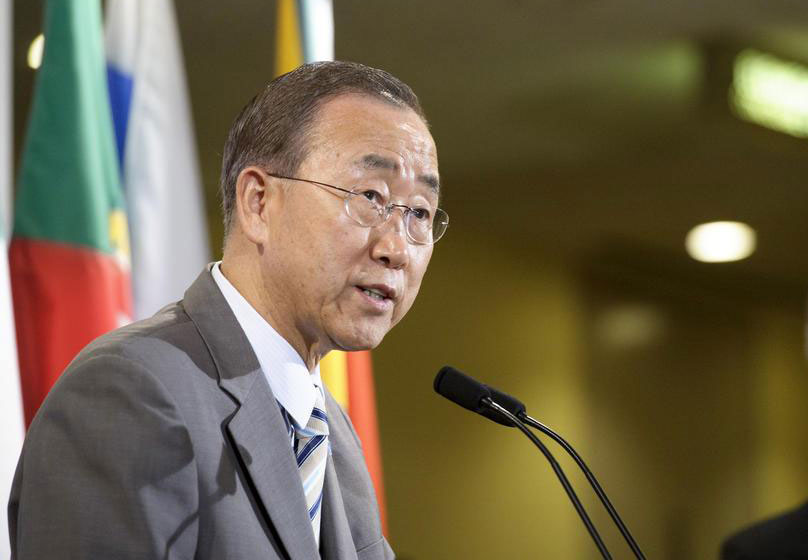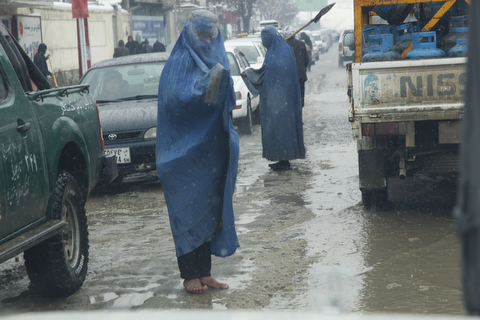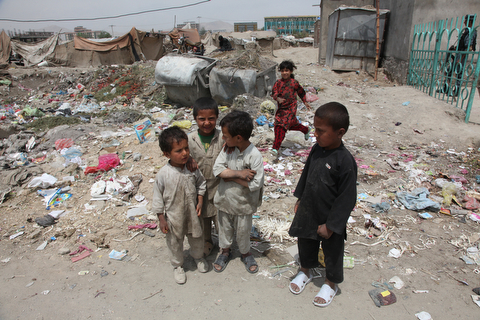NEW YORK - Marking the International Day for the Eradication of Poverty, United Nations Secretary-General Ban Ki-moon has noted that while poverty levels around the world have fallen, that progress has been uneven.“Our impressive achievement in cutting poverty by half should not blind us to the fact that more than 1.2 billion people still live in extreme poverty worldwide,” Mr. Ban said in his message for the Day.
“Rising inequality in many countries – both rich and poor – is fueling exclusion from economic, social and political spheres, and we know that the impacts of climate change and loss of biodiversity hit the poorest the hardest,” he added. “All of this underpins the need for strong and responsive institutions.”
The General Assembly designated 17 October as the International Day for the Eradication of Poverty in 1993, with the aim of promoting awareness of the need to eradicate poverty and destitution in all countries.
In his message, the UN chief noted that this year’s observance comes as the international community is pursuing twin objectives: intensifying efforts to reach the Millennium Development Goals (MDGs), and formulating the next set of goals to guide international development efforts after the MDG deadline of 2015.
Agreed by world leaders at a UN summit in 2000, the MDGs set specific goals on poverty alleviation, education, gender equality, child and maternal health, environmental stability, HIV/AIDS reduction, and a global partnership for development.
In addition to halving the number of people living in extreme poverty, the MDGs that have already been met include providing more than two billion people with access to improved sources of drinking water. Countries have also made great strides on health targets, and are within close reach of achieving them by 2015. These include reducing the mortality rates from malaria and tuberculosis and slashing HIV infections.
Fighting poverty remains not only at the core of the MDGs, but also of the post-2015 development agenda, which centres on shaping the world’s development strategy for the period after the 2015 MDG deadline.
“This post-2015 agenda must have poverty eradication as its highest priority and sustainable development at its core,” Mr. Ban said in his message. “After all, the only way to make poverty eradication irreversible is by putting the world on a sustainable development path. We have much work ahead.”
According to data collected in a 2010 report by the Afghan Ministry of Economy and the World Bank, ‘Poverty Status Report for Afghanistan,’ the national poverty rate for Afghanistan is 36 per cent, meaning that approximately nine million Afghans are not able to meet their basic needs, and many more people who are highly susceptible to becoming poor.
“One small, negative shock has the potential to move many individuals into poverty,” the report states.
A UN human rights report in 2010 noted that, in Afghanistan, one in three Afghans lives in absolute poverty and cannot meet his or her basic needs; another third of the Afghan population lives slightly above the poverty line, which makes them extremely vulnerable to any adverse event, such as drought, floods, earthquakes or a near-by health facility running out of medication.
Poverty reduction is one of the three key objectives of the Afghanistan National Development Strategy (ANDS). Launched in 2008, and serving as the country’s poverty reduction strategy, it identifies a number of factors which contribute to poverty including “lack of infrastructure, limited access to markets, social inequity, historical and ongoing conflict, and various productivity constraints.”
“We need to do more to listen and act for those whose voices often go unheard – people living in poverty, and in particular among them indigenous people, the older persons and those living with disabilities, the unemployed, migrants and minorities,” Secretary-General Ban said in his message. “We need to support them in their struggle to escape poverty and build better lives for themselves and their families.”
“Together,’ he continued, “we can build a sustainable world of prosperity and peace, justice and equity – a life of dignity for all.”








